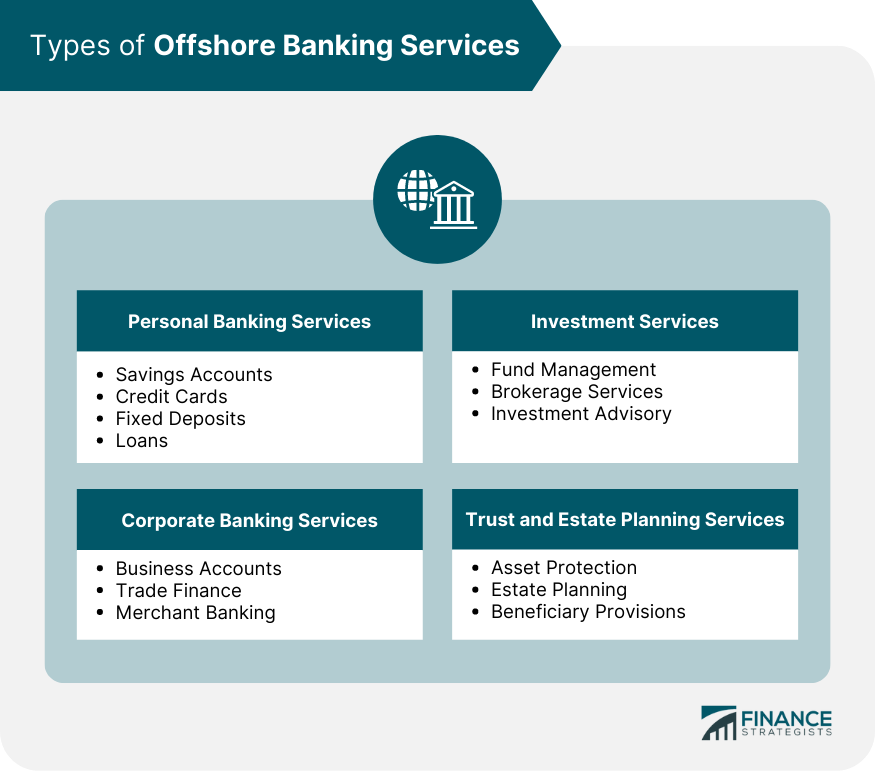Debunking Offshore Business Formations: How They Operate and What to Expect
Offshore company formations can seem complex and enigmatic. Offshore Company Formations. These entities, often developed for tax obligation benefits and privacy, run under distinct legal frameworks. Business owners may locate themselves steering with a maze of guidelines and conformity needs. Recognizing the intricacies is vital for success. What are the actual benefits? What are the prospective challenges? A closer exam discloses the subtleties that can affect decision-making significantly
Understanding Offshore Business: Interpretations and Types
Offshore companies are entities established in a jurisdiction outside of an individual's or company's main country of residence, frequently for purposes connected to tax obligation optimization, possession security, or regulatory benefits. These business can take different types, consisting of limited obligation business (LLCs), international business companies (IBCs), and offshore trusts. Each kind serves details functions and charms to various demands.
Restricted responsibility business provide owners with defense from individual obligation, while international business companies are prominent for their versatility and marginal coverage demands. Offshore counts on, on the other hand, are used primarily for estate preparation and possession defense.
The option of jurisdiction greatly influences the business's procedures, as some areas provide extra desirable legal structures and personal privacy protections. Offshore Company Formations. Understanding the distinctions in between these kinds is essential for people and organizations taking into consideration offshore frameworks, as each option carries various effects for governance and conformity
The Advantages of Establishing an Offshore Firm
Developing an offshore company can give numerous benefits, particularly for those looking for to improve their monetary methods and secure their assets. One considerable benefit is tax obligation optimization; several jurisdictions provide favorable tax prices or exemptions, enabling services to maintain even more profits. In addition, offshore firms can give a layer of personal privacy, securing the identifications of owners and shareholders from public examination.
An additional advantage is asset defense. By placing properties in an offshore entity, people can guard their wealth from possible legal insurance claims or political instability in their home countries. This framework also promotes worldwide company procedures, making it possible for simpler accessibility to international markets and diverse clients.
Furthermore, the establishment of an overseas firm can boost integrity and reputation, attracting clients that value international business practices. On the whole, these benefits make overseas firm formations an attractive choice for services and individuals going for monetary development and security.
Key Factors To Consider Before Developing an Offshore Entity
Prior to creating an offshore entity, several critical variables need to be analyzed. Lawful compliance needs, tax obligation implications and advantages, in addition to jurisdiction choice, play a significant duty in the decision-making process. Comprehending these factors to consider can aid people and businesses navigate the intricacies of overseas firm formations successfully.
Legal Compliance Demands
When taking into consideration the formation of an offshore entity, recognizing legal conformity needs is important to guarantee adherence to both global and regional laws. Potential company owner have to acquaint themselves with laws controling business registration, reporting obligations, and functional standards in the picked territory. This consists of validating the legal demands for investors and supervisors, as well as guaranteeing conformity with anti-money laundering (AML) and know-your-customer (KYC) policies. Additionally, services ought to continue to be familiar with any kind of licensing demands specific to their industry. Engaging neighborhood lawful and economists can offer valuable insights, making certain that all essential documentation is prepared and submitted properly. Inevitably, detailed expertise of lawful compliance assists alleviate risks and promotes a sustainable offshore procedure.
Tax Implications and Advantages
Numerous business owners think about the tax ramifications and benefits of creating an overseas entity as an important consider their decision-making process. Offshore firms can use significant tax benefits, such as decreased company tax obligation prices, exemption from specific local taxes, and the ability to postpone taxes on foreign earnings. These benefits can lead to enhanced success and capital, making overseas frameworks appealing for international company operations. Additionally, the capacity for tax obligation treaties might further lessen tax obligation responsibilities. However, it is essential for business proprietors to recognize the complexities entailed, consisting of conformity with both international and regional tax policies. Engaging with tax specialists is advisable to browse these intricacies properly and ensure ideal tax obligation planning methods.
Territory Selection Variables
What factors should one think about when choosing a territory for overseas firm development? Key considerations include tax obligation efficiency, governing atmosphere, and political security. Jurisdictions with beneficial tax regimens can greatly affect productivity. The governing landscape needs to supply flexibility and ease of conformity, permitting effective company operations. Political stability is crucial, as it ensures the safety and security of possessions and continuity of operations. In addition, the track record of the jurisdiction can impact client depend on and organization connections. Ease of access to banking solutions and the schedule of professional support solutions are additionally vital. Finally, recognizing local laws pertaining to reporting, privacy, and possession demands is necessary to identify that the offshore entity lines up with the business proprietor's goals and lawful obligations.
The Refine of Establishing Up an Offshore Company
Setting up an overseas firm entails a collection of critical steps that need careful preparation and compliance with worldwide laws. A private have to choose an appropriate territory that lines up with their business objectives and uses beneficial tax obligation benefits. Adhering to territory option, the next step is to select a distinct company name and prepare the essential documents, including write-ups of unification and shareholder arrangements.
When the paperwork prepares, it must be sent to the pertinent authorities in addition to the needed fees. After approval, the business will certainly obtain a certification of incorporation, officially developing its legal existence. The private have to after that open a company financial institution account to facilitate economic transactions.
Finally, keeping an overseas business involves sticking to continuous conformity demands, such as yearly reporting and tax obligations, which differ by jurisdiction. Comprehending each action is important for an effective offshore company development.

Governing and lawful Framework for Offshore Firms
While developing an overseas company can use considerable benefits, it is vital to navigate with the intricate lawful and regulatory structure that regulates such entities. Each territory has its own collection of regulations that determine every little thing from firm development to taxation and compliance needs. These regulations are designed to stop unlawful tasks, such as money laundering and tax obligation evasion, and usually call for complete paperwork and transparency.
Key aspects of this structure consist of the requirement of selecting neighborhood directors, preserving a registered office, and sticking to yearly coverage responsibilities. Additionally, many news territories enforce certain licensing needs for sure business activities. Understanding these legal specifications is crucial for guaranteeing conformity and mitigating threats related to charges or lawful disputes. Consequently, engaging with lawyers who concentrate on offshore firms can assist in steering via this intricate landscape, inevitably assisting in a effective and certified overseas organization operation.
Common False Impressions About Offshore Companies
Lots of people hold mistaken beliefs regarding offshore companies, usually relating them with tax evasion and prohibited activities. It is essential to identify that these entities can run legitimately within a framework designed for reputable service methods. Making clear the lawful status of overseas companies can help resolve these misconceptions and advertise a more accurate understanding of their function.
Tax Evasion Myths
Regardless of the growing appeal of overseas firms, misunderstandings about their usage for tax obligation evasion continue. Several people erroneously believe that developing an overseas entity is only a way to avoid taxes. Overseas business are often made use of for legit objectives, such as property defense, international company development, and financial investment diversification. The understanding that all offshore tasks correspond to illegal tax evasion overlooks the complexities of international tax obligation policies and conformity requirements. In addition, the huge majority of offshore territories have actually carried out procedures to battle tax obligation evasion, promoting transparency and info exchange. This mischaracterization can deter legit companies and capitalists from exploring the possible advantages of overseas firm formations while continuing a negative preconception surrounding these entities.
Legal Condition Clarified
The legal standing of overseas companies is commonly misinterpreted, leading to a Continue selection of misunderstandings. Many think these entities operate in a lawful gray location, presuming they are naturally unlawful or dishonest. Actually, overseas companies are legitimate organizations developed under the legislations of certain territories, created for various reasons, consisting of possession defense and market growth. An additional usual mistaken belief is that overseas companies avert taxes totally; however, they are subject to the laws and tax responsibilities of their home countries. Additionally, some people think that offshore firms can be quickly exploited for money laundering or prohibited activities. While abuse can happen, most territories implement stringent compliance and openness legislations to alleviate such risks, guaranteeing that overseas business run within legal structures.

Managing and Operating Your Offshore Business Successfully
Effectively handling and running an offshore business requires a critical approach that balances conformity with regional regulations and the search of company objectives. Effective offshore monitoring entails understanding the territory's tax regulations, reporting demands, and operational guidelines. Using local specialists, such as accountants and lawful consultants, can give indispensable insights into traversing these intricacies.
Furthermore, developing clear interaction channels and operational procedures is important for keeping effectiveness. Utilizing technology for project monitoring and partnership can boost efficiency, while normal efficiency assesses warranty placement with critical purposes.
Keeping durable financial documents is necessary, as transparency cultivates depend on with stakeholders and complies with global standards. Being versatile to modifications in legislation or market problems permits offshore firms to pivot successfully, ensuring long-term sustainability and development. By adhering to these principles, company owner can make best use of the benefits of their offshore endeavors while mitigating threats.
Often Asked Questions
Just how much Does It Cost to Preserve an Offshore Business Annually?
The expense to keep an offshore company yearly differs substantially, generally ranging from $1,000 to $5,000, depending upon jurisdiction, solutions needed, and conformity commitments. It is crucial to take right into account extra fees for details requirements.
Can I Open a Checking Account for My Offshore Business Remotely?
Opening up a financial institution account for an overseas company from another location is usually possible. Nonetheless, demands might vary by territory, commonly demanding documents and verification processes, which can complicate the remote application experience for people.
Are There Details Nations Recognized for Easier Offshore Company Formations?
Certain countries, such as Belize, Seychelles, and the British Virgin click here for more info Islands, are renowned for their beneficial regulations and streamlined procedures regarding overseas firm formations, drawing in entrepreneurs seeking performance and privacy in company operations.
What Kinds of Companies Are Ideal Suited for Offshore Companies?
Specific companies, such as working as a consultant, ecommerce, and investment companies, usually gain from offshore companies due to tax obligation advantages, personal privacy, and governing adaptability - Offshore Company Formations. These entities commonly prosper in jurisdictions that advertise beneficial organization settings
How Can I Make Sure Conformity With Local Legislations When Running Offshore?
To guarantee compliance with neighborhood legislations when running offshore, it is essential to involve lawful professionals, carry out detailed research study on jurisdiction policies, and maintain clear monetary documents, consequently minimizing dangers linked with non-compliance.
